Happiness For Everyone
20 Jul 2020 | Ginny Sassaman
Our Moral Obligation to Change the Economic
Paradigm
"When the last tree is cut, the last fish is caught, and the
last river is polluted; when to breathe the air is sickening, you
will realize, too late, that wealth is not in bank accounts and you
can't eat money" ~ Alanis Obomsawin
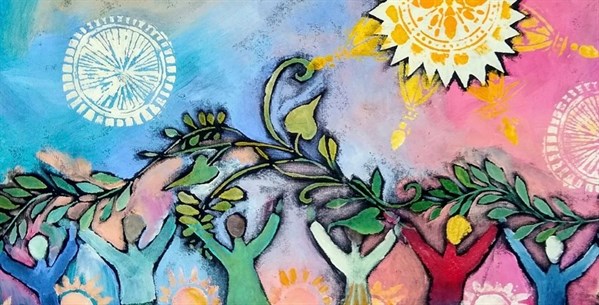
My family was big into board games when I was growing up. A
particular favorite was The Game of Life. After spinning the wheel
of fortune, you got to steer a tiny car driven by your itsy-bitsy
peg person over actual bridges next to 3D buildings. It was
thrilling to go to college, earn a degree, get married, and gather
pink and blue children to fill the family sedan.
And who won the game? The player with the most money and
material well-being. Not the one who had the most satisfying
career, or gave generously in community service, or who had a car
full of family members. Nope. It was all about financial assets.
That's how you win at life!
Amazing to think back on it now. How well-trained we were to
measure what matters based on never ending growth and consumption!
But life isn't actually a game with inflexible rules. We can make
other choices. Indeed, it is a moral obligation for us to do
better-for ourselves and others, including future generations-so we
can all be genuinely and collectively happier.
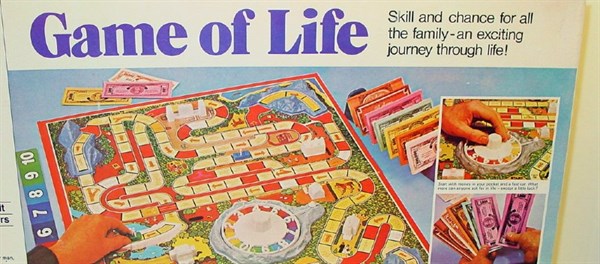
That's what Greenpeace President Annie Leonard urges us to do.
Before assuming her current role, she made provocative animated
videos, like The Story of Solutions, which suggests we can
move toward a happy, sustainable planet by redefining what winning
looks like. Currently, our cultural end goal is more - more money,
bigger yachts, shinier toys, more prisons, more polluting
smokestacks, more, more, more. Instead, Leonard suggests, we need
"simply" to change the goal of our collective lives to better.
Though I hardly think it will be "simple" to switch from more to
better, Leonard's solution is brilliant. First, she neatly
illustrates that "more" does not equal quality of
life at all. The GDP barometer merely measures how much
money changed hands. It is completely amoral. That money could be -
and mostly is - within the hands of a tiny fraction of
humanity.
It can include the costs of new solar panels, it's true, but it
also includes money for new fossil fuel infrastructure. It does not
include much that gladdens the human heart, such as our spiritual
practices, trees, or grandbaby hugs. Despite the fact that the GDP
was never meant to measure more than the exchange of goods and
services, it's become the primary barometer for our collective
well-being. It is high time we created a better barometer!
Second, Leonard provides a positive, common sense
alternative. She never actually uses the words 'Gross
National Happiness', but she prescribes a new, inclusive, holistic
way of measuring and encouraging a life well lived by actively
reframing what success looks like.
Finally, I find Leonard's solution brilliant because it is based
on the very human hunger for accomplishment.
Winning the game. This hunger can lead those who might push a
little too fervently to overachieve. Taken too far, this drive
might even manifest as greed. This is important, because some think
that greed is at the heart of many societal ills and, certainly,
the pursuit of an illusory infinitely growing economy.
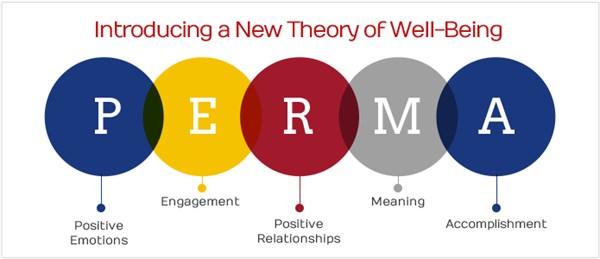
But what if greed could be channeled as a social good? The work
of Martin Seligman makes me believe this is possible. In his book
Flourish, Seligman - the father of positive
psychology and former head of the American Psychological
Association - used the acronym P.E.R.M.A. to describe the five key elements of
well-being:
The P stands for experiencing positive
emotions, E for engagement using one's
strengths, R for positive relationships, M for
meaning, and A for
accomplishment. I find this grid helpful for
understanding what motivates both individuals and societies.
Of the five happiness needs, it's the A, accomplishment, that is
most unexpected and intriguing. While all of the measures can be
used for darkness or light, accomplishment seems especially prone
to amorality. Though it can mean inventing a life-saving vaccine,
it can also mean razing the rain forest to build a golf resort.
Yet, the desire for accomplishment is a life force we can
harness. Both The Story of Solutions and the Gross National
Happiness movement take the aikido approach and work with, not
against, human nature. Nobody's talking about utopia. We're
envisioning better approaches that can be taken by real humans,
with all their complex wiring, including the accomplishment drive
which sometimes ramps up to all-out greed.
By changing the end goal-what we want to achieve-to better, we
can encourage everyone, including Type A overachievers and those in
the grips of greed, to focus those desires directly on happiness
rather than on the stepping stones of stuff and money.
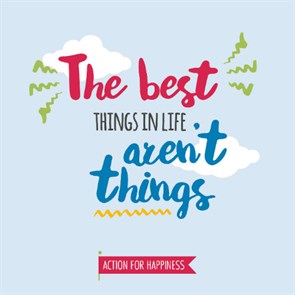
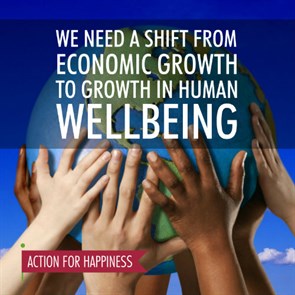
One way to do that is to change what we measure.
As we wind our way through life, both personally and
systemically, we use measurements to gauge how we're doing. It
matters very much what we choose to measure, because that's where
we focus our limited time and energy. Believe me, in that Life
board game, which I always wanted to win, I paid careful attention
to accruing financial assets.
In real life, you can measure the cash in your retirement
accounts, your blood pressure, and/or how much fossil fuel you're
burning - depending on your own narrative - and that data will
guide your choices, to an extent at least, consciously or
subconsciously. Yet, each data point represents a small fraction of
your overall, complex story.
To adequately assess your progress through life, you need a
comprehensive, thoughtful set of measures. Perhaps you'd like to
note how many friends you have dinner with regularly? Or the number
of volunteer hours you put in? Maybe the mountains you've climbed?
Or languages you speak?
One of my measurement tools is a pedometer. I'm one of those
"10,000 steps a day" people. The steps are good, but the pedometer
doesn't record whether I've taken the calcium I need for my
osteoporosis, done my daily back exercises, meditated, had too much
wine or eaten too much chocolate. It doesn't measure if I've gotten
enough sleep, hugged anybody, or savored the sunset.
So I have created my own scale-charts I fill in to note whether
or not I've practiced gratitude, drank enough water, been nice to
at least one person, and … gotten in my 10,000 steps.
Measuring GDP is kind of like the pedometer gone haywire,
measuring one thing and one thing only. Yet, there it is, regularly
and enthusiastically cited in respected news sources: the GDP is
up, or down. As if that alone tells us whether we're happy and
whether we're well.

"Happiness is neither a frivolity nor a luxury. It is a
deep-seated yearning shared by all members of the human family. It
should be denied to no-one and available to all." UN
Secretary-General Ban Ki-moon

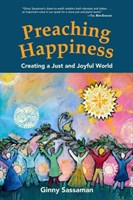
About The Author
Ginny Sassaman, M.S., C.I.P.P. is a happiness
advocate, lay preacher and author of a new book Preaching Happiness: Creating a Just and Joyful
World